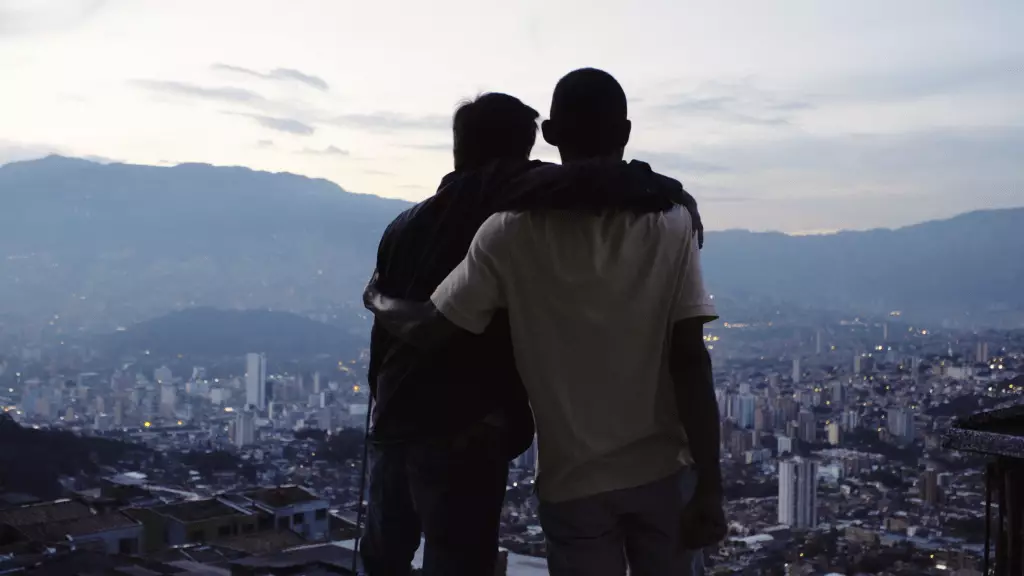Today, the vibrant city of Bogotá, Colombia, finds itself at the crossroads of history, redemption, and poignant storytelling as it hosts a special screening of the documentary *Lara: The Man Who Tried to Save Colombia*. This powerful film delves into the lives marked by the notorious Pablo Escobar and the political turmoil that gripped Colombia during the drug lord’s reign of terror. It offers a gripping exploration of reconciliation and healing that serves not just as a lens into the past but as a beacon of hope for a fractured society. The screening, timed to coincide with the 41st anniversary of the assassination of politician Rodrigo Lara, underscores the urgent need for societal healing amidst unresolved pain.
Organized by the Jorge Lara Restrepo Foundation and backed by the Universidad Externado de Colombia, the event has drawn a diverse audience, including family members of the late politician, influential figures in Colombian politics, diplomatic representatives, and media from across Latin America. This engagement highlights how deeply intertwined the stories of those affected by the country’s turbulent past continue to be, sparking interest and dialogue about the legacies of violence and loss.
A Personal Journey of Reconciliation
One of the most resonant elements of the documentary is its portrayal of a unique friendship forged between two men who grew up under the heavy burdens of their fathers’ legacies. Sebastián Marroquín, the son of Pablo Escobar, and Jorge Lara, whose father fell victim to Escobar’s ruthless machinations, form an unlikely bond in the quest for understanding and healing. As the film narrates their journey, it challenges the viewer to reflect on the complexities of hatred and compassion—how revenge can gradually transform into acceptance when confronted with shared human experiences.
Indeed, Jorge Lara’s effort to reconcile with the son of one of the world’s most infamous criminals is not merely an emotional journey; it serves as an indictment of the societal norms that perpetuate a cycle of bitterness. Gavan, the documentary’s director, who invested over a decade in bringing this story to fruition, highlights the ongoing struggle for justice surrounding the unresolved crime of Lara’s assassination. Her insights regarding Jorge’s death while still mulling over the injustices tied to his father’s legacy enhance the narrative, making it deeply personal and profoundly compelling.
The Call for Justice and Accountability
However, amid the emotional weight of reconciliation lies an often overlooked but critical theme: the quest for justice. Gavan emphasizes that the documentary stands as a rallying cry for Colombian authorities to examine their systemic failings and pursue a thorough investigation into assassinations that remain cloaked in obfuscation. Jorge Lara’s adherence to his father’s unfulfilled plea for justice perpetuates a collective yearning within his community—a demand for accountability that resonates well beyond the personal narratives depicted in the film.
The co-founders of the Jorge Lara Restrepo Foundation, Lina and Carolina Flórez García, articulate this sentiment as they speak of the documentary as not simply a film, but as an act of resistance. Their statement resonates profoundly within the backdrop of Colombia’s turbulent history, as they shine a light on the systemic corruption that has clouded the truth surrounding Rodrigo Lara’s assassination. Within this framework, the documentary emerges as a metaphorical lantern, illuminating a path toward healing rekindled by the harsh realities of societal disillusionment.
A Groundbreaking Shift in Cinematic and Cultural Tapestry
Banijay Rights’ Simon Cox aptly describes the project as a reconciliation narrative that captures the symbolic essence of familial bonds, loss, and the quest for peace. The significance of holding a screening in the very city where Rodrigo Lara lost his life adds layers of poignancy to the event. Such moments signify cultural milestones, where art meets activism, contributing critically to the ongoing dialogue about healing within Colombia.
This documentary not only addresses injustices but also imbues hope that transcends personal stories, advocating for a broader cultural shift. In a world frequently marred by division, *Lara: The Man Who Tried to Save Colombia* resonates with universal themes of love, loss, and understanding. By reframing the narrative around Colombia’s past, it serves as a powerful testament to resilience, fostering a generation bent on finding peace amidst the shadows of their history.

